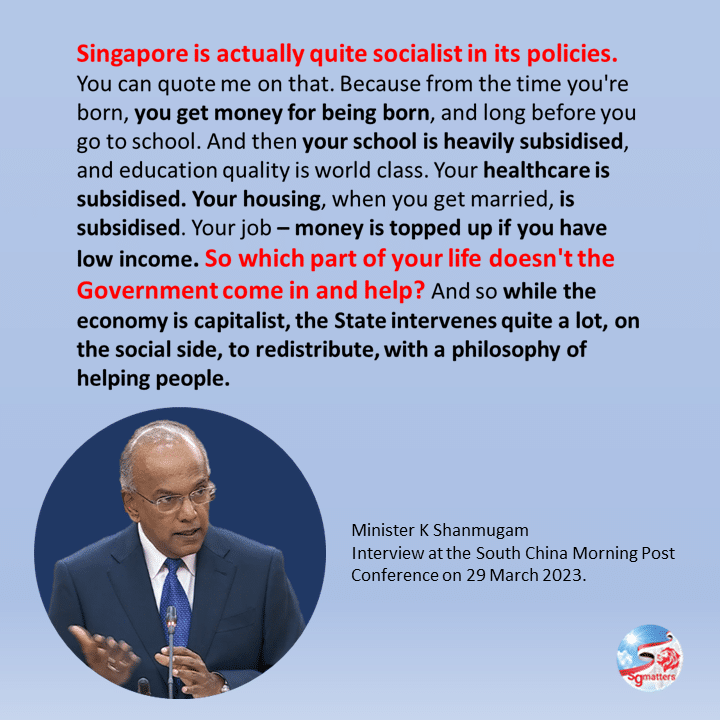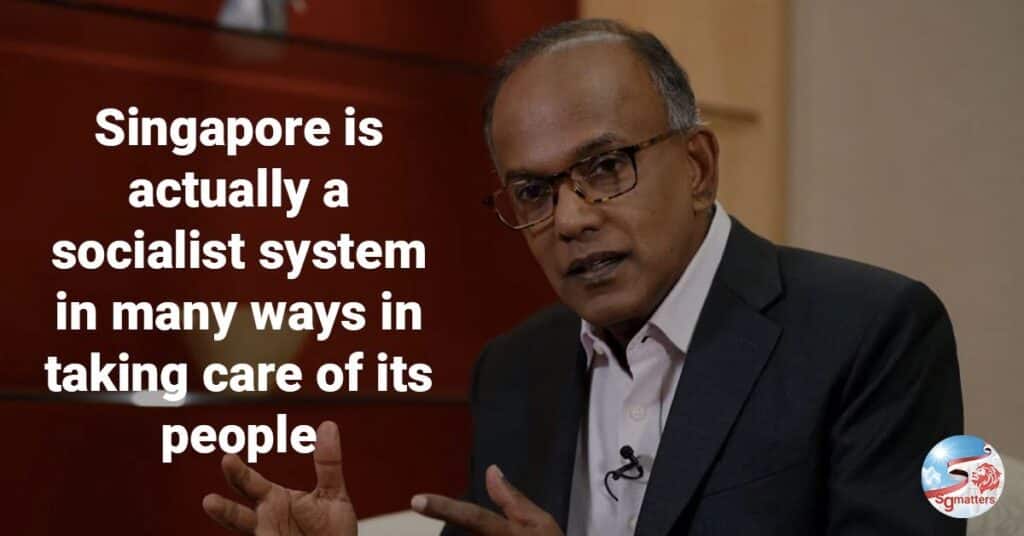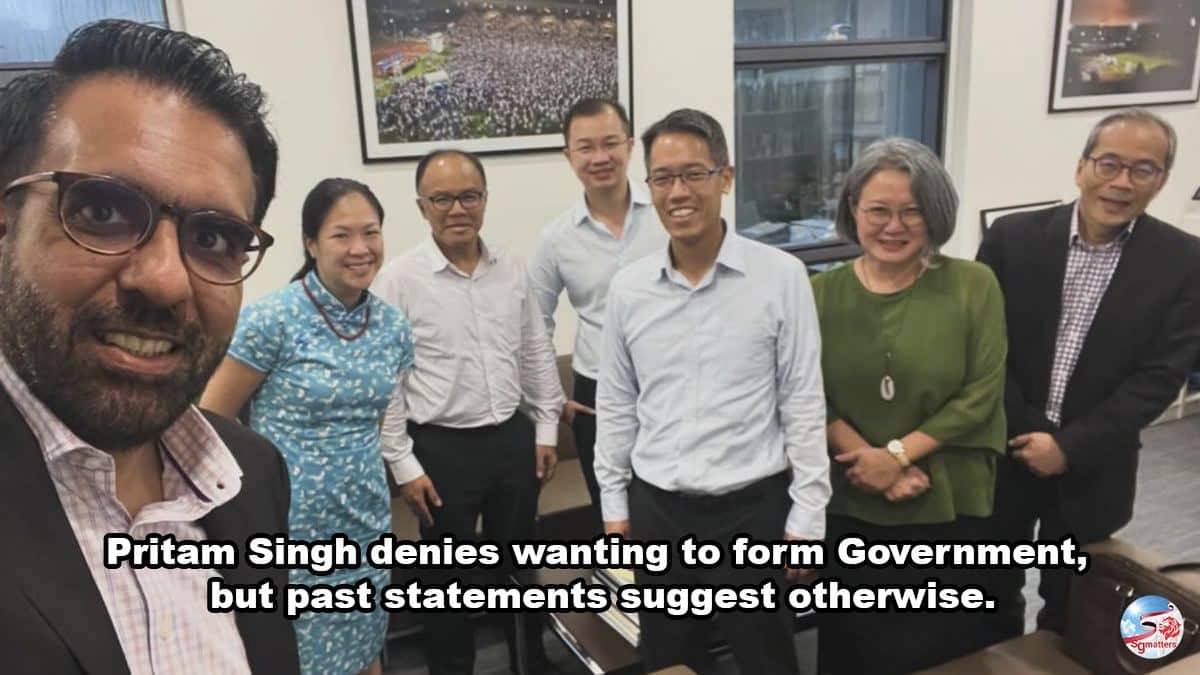While the economy of Singapore is capitalist, Singapore is actually socialistic in its policies, Minister for Law and Minister for Home Affairs K Shanmugam said in an interview with the South China Morning Post.
“Because from the time you’re born, you get money for being born, and long before you go to school. And then your school is heavily subsidised, and education quality is world class. Your healthcare is subsidised. Your housing, when you get married, is subsidised. Your job – money is topped up if you have low income. So which part of your life doesn’t the Government come in and help?”
“And so while the economy is capitalist, the State intervenes quite a lot, on the social side, to redistribute, with a philosophy of helping people.”

'you get money for being born'
'your school is heavily subsidised'
Primary school fee: $0
Secondary school fee: $5
Pre-University school fee: $6
In addition, every Singaporean child/student receives an annual contribution paid to the Edusave Account.
Here’s how much each child will receive this year:
Tuition fees in Institutes of Higher Learnings (IHLs) are subsidised up to 80% of fees depending on course of study.
'your healthcare is subsidised'
'your housing is subsidised'
'your money is topped up if you have low income'
No choice but to be competitive
Singapore is very small. It is a both a sovereign country and a city-state. Wealth creation in Singapore is based purely on being able to compete with the world. This is because Singapore doesn’t produce the resources that Malaysia, or any other country, produces. Therefore Singapore has to be competitive, Minister Shanmugam said.
“So, in that sense, Singapore and Singaporeans don’t have much choice other than to compete with the world. And if we don’t compete, we are not competitive, then the quality and the standard of life in Singapore will be very different,” he said.





